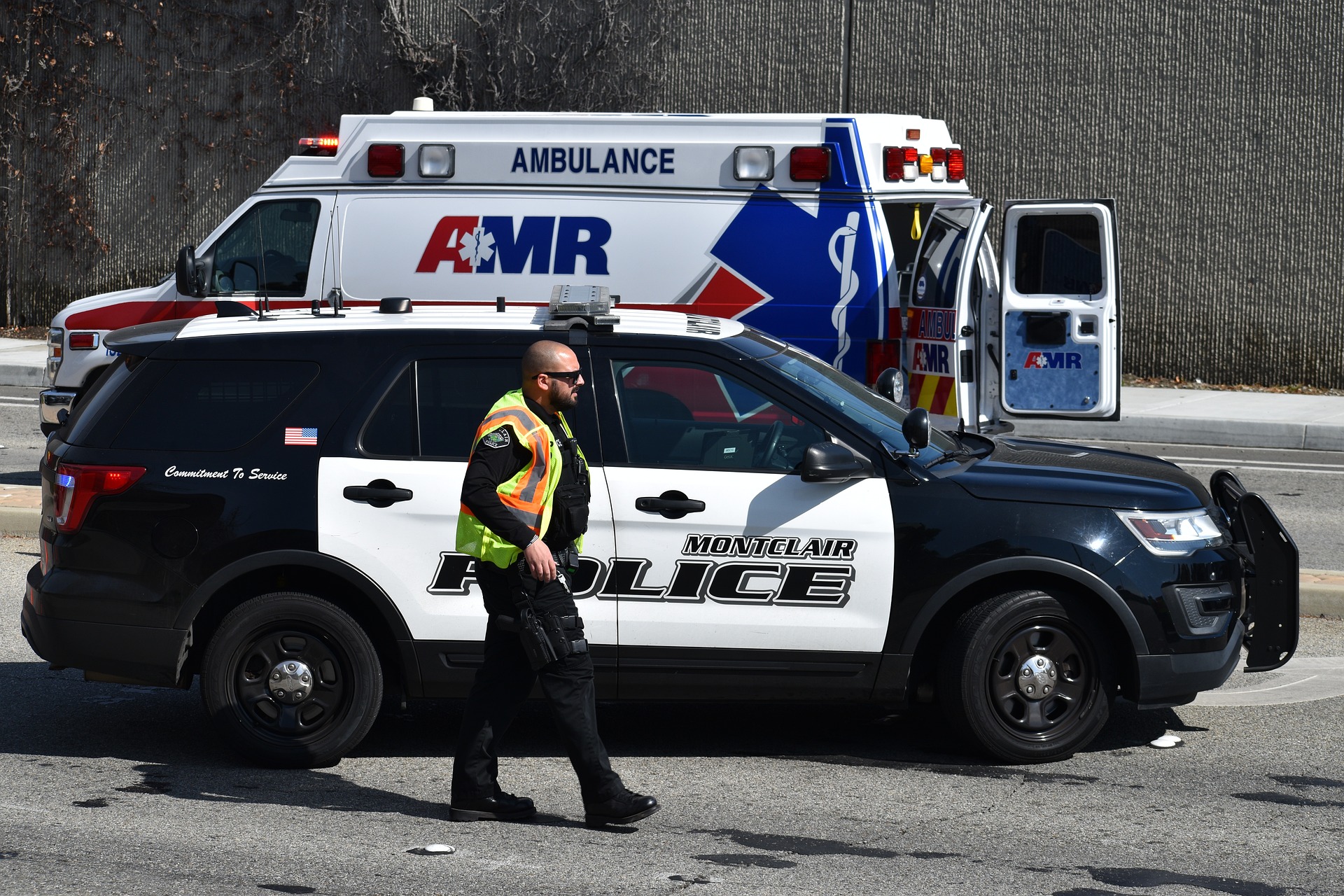The demanding nature of law enforcement takes a significant toll on the mental health of police officers. Exposure to traumatic events, high-stress situations, and the weight of public scrutiny can lead to various mental health challenges. This article provides a practical guide for police officers on maintaining good mental health, including stress management techniques, the importance of work-life balance, and how to recognize signs of burnout or PTSD. We’ll also explore how departments can use digital tools to provide resources and support, emphasizing confidentiality and ease of access.
Understanding the Mental Health Challenges in Law Enforcement
Before diving into strategies, it’s crucial to understand the unique mental health challenges faced by police officers:
- Cumulative Stress: Repeated exposure to traumatic events can have a compounding effect on mental health.
- Shift Work: Irregular hours can disrupt sleep patterns and personal life, impacting overall well-being.
- Hypervigilance: The constant state of alertness required on duty can be difficult to “switch off” during personal time.
- Public Scrutiny: Intense public and media scrutiny can lead to feelings of isolation and defensiveness.
- Stigma: There’s often a culture of silence around mental health issues in law enforcement, discouraging officers from seeking help.
Essential Mental Health Strategies for Police Officers
1. Stress Management Techniques
Developing a Toolkit for Stress Relief
Effective stress management is crucial for maintaining mental health in high-pressure environments:
- Deep Breathing Exercises: Practice controlled breathing techniques to reduce stress in the moment.
- Progressive Muscle Relaxation: Learn to systematically tense and relax muscle groups to release physical tension.
- Mindfulness Meditation: Incorporate short mindfulness practices into daily routines to improve focus and reduce stress.
- Physical Exercise: Regular exercise can significantly reduce stress and improve overall mental health.
Implementation Tip: Use a digital form to create a personalized stress management plan, tracking which techniques work best for you over time.
2. Maintaining Work-Life Balance
Creating Clear Boundaries Between Work and Personal Life
Achieving a healthy work-life balance is essential for long-term mental well-being:
- Set Clear Boundaries: Establish and maintain clear boundaries between work and personal time.
- Pursue Non-Work Related Hobbies: Engage in activities completely unrelated to law enforcement to mentally disconnect from work.
- Schedule Family Time: Prioritize and schedule time with family and friends, treating it with the same importance as work commitments.
- Limit Work Discussions at Home: Practice leaving work discussions at work to fully engage in personal life.
Digital Tool Idea: Implement a digital calendar system that encourages officers to schedule and protect personal time alongside work commitments.
3. Building a Support Network
Cultivating Relationships for Emotional Support
A strong support network is crucial for maintaining mental health:
- Peer Support Groups: Participate in or initiate peer support groups within your department.
- Professional Counseling: Regularly connect with a mental health professional who understands law enforcement challenges.
- Family and Friends: Foster open communication with loved ones about the challenges of the job.
- Mentorship: Seek out or become a mentor to share experiences and coping strategies.
Digital Solution: Create a secure, anonymous digital platform for officers to connect with peer support or professional counselors.
4. Recognizing Signs of Burnout and PTSD
Early Identification for Timely Intervention
Being able to recognize the signs of burnout and PTSD is crucial for early intervention:
- Burnout Symptoms: Watch for emotional exhaustion, cynicism, and feelings of ineffectiveness.
- PTSD Indicators: Be aware of symptoms like flashbacks, avoidance behaviors, and heightened reactivity.
- Mood Changes: Pay attention to persistent changes in mood, sleep patterns, or appetite.
- Performance Issues: Note any unexplained declines in job performance or increased absenteeism.
Implementation Strategy: Develop a confidential digital self-assessment tool that officers can use regularly to check for signs of burnout or PTSD.
5. Practicing Self-Care
Prioritizing Personal Well-being
Regular self-care is essential for maintaining mental health:
- Physical Health: Maintain regular check-ups, eat a balanced diet, and prioritize sleep hygiene.
- Mental Stimulation: Engage in activities that challenge your mind outside of work, like reading or learning new skills.
- Relaxation Techniques: Practice relaxation methods like yoga, meditation, or any calming activity you enjoy.
- Time in Nature: Spend time outdoors to reduce stress and improve overall well-being.
Digital Resource: Create a digital self-care checklist or tracker that officers can use to ensure they’re maintaining a balanced self-care routine.
6. Seeking Professional Help
Overcoming Stigma to Access Support
Encouraging a culture where seeking professional help is seen as a strength, not a weakness:
- Regular Check-ins: Normalize regular mental health check-ins with professionals, just like physical health check-ups.
- Confidential Access: Ensure access to mental health professionals who understand law enforcement challenges.
- Peer Testimonials: Share stories of officers who have benefited from professional help to reduce stigma.
- Education: Provide information about the benefits of professional mental health support.
Digital Tool: Implement a confidential digital system for requesting appointments with mental health professionals, emphasizing ease of access and privacy.
7. Developing Emotional Intelligence
Enhancing Self-Awareness and Interpersonal Skills
Improving emotional intelligence can significantly impact an officer’s ability to manage stress and interact effectively:
- Self-Awareness: Practice recognizing and understanding your own emotions and triggers.
- Empathy Training: Develop skills to better understand and respond to others’ emotions.
- Conflict Resolution: Learn techniques for de-escalating conflicts both on the job and in personal life.
- Stress Response Awareness: Understand your personal stress responses and develop strategies to manage them effectively.
Training Opportunity: Offer digital courses or workshops on emotional intelligence tailored for law enforcement professionals.
8. Maintaining Physical Health
Supporting Mental Health Through Physical Wellness
Physical health plays a crucial role in maintaining good mental health:
- Regular Exercise: Establish a consistent exercise routine, even if it’s just short daily workouts.
- Nutrition: Focus on a balanced diet that supports both physical and mental health.
- Sleep Hygiene: Prioritize good sleep habits, especially considering the challenges of shift work.
- Limiting Alcohol and Caffeine: Be mindful of alcohol and caffeine intake, which can impact sleep and mood.
Digital Support: Implement a wellness app or digital form for officers to track their physical health goals and progress.
How Departments Can Support Officer Mental Health Through Digital Tools
Police departments can leverage digital tools to provide comprehensive support for officer mental health:
1. Confidential Resource Access
- Secure Portals: Create password-protected portals where officers can access mental health resources anonymously.
- Mobile Apps: Develop or adopt mobile apps that provide on-the-go access to mental health tools and resources.
2. Digital Training and Education
- E-Learning Modules: Offer online courses on stress management, resilience building, and mental health awareness.
- Webinars: Host regular webinars featuring mental health professionals and peer speakers.
3. Anonymous Feedback and Reporting
- Stress Reporting Forms: Implement confidential digital forms for officers to report job-related stressors.
- Suggestion Boxes: Create digital suggestion boxes for officers to propose mental health initiatives.
4. Wellness Tracking and Reminders
- Self-Assessment Tools: Provide digital self-assessment questionnaires for officers to regularly check their mental health status.
- Wellness Reminders: Set up automated reminders for self-care activities, check-ins, or available support services.
5. Virtual Support Groups
- Online Forums: Create secure, moderated online forums for officers to share experiences and support each other.
- Virtual Meet-ups: Organize regular virtual support group meetings for officers with similar experiences or challenges.
Leveraging Technology for Comprehensive Mental Health Support
Implementing these digital tools doesn’t have to be complicated or expensive. Platforms like Officer Survey’s Government Form Builder offer user-friendly solutions that can be tailored for mental health support in law enforcement:
- Customizable Forms: Create confidential self-assessment tools, resource request forms, and feedback mechanisms.
- Secure Data Handling: Ensure all mental health-related information is protected with the highest level of security.
- Mobile Accessibility: Provide officers with 24/7 access to resources and support through mobile-optimized forms and portals.
- Analytics Dashboard: Use anonymized data to identify trends and areas where additional support may be needed.
Prioritizing Mental Health in Law Enforcement
Maintaining good mental health is not just a personal responsibility—it’s an essential aspect of effective policing and officer well-being. By implementing these strategies and leveraging digital tools for support, police officers can:
- Improve their resilience to job-related stress
- Enhance their overall quality of life
- Perform more effectively in their professional roles
- Contribute to a healthier, more supportive law enforcement culture
For police departments, prioritizing officer mental health through accessible, confidential digital resources is an investment in the overall health of the force and the community it serves.
Are you ready to take proactive steps towards better mental health for your department? Explore how implementing these strategies and digital support tools can transform your approach to officer wellness. With user-friendly, secure solutions like Officer Survey’s Government Form Builder, creating a comprehensive mental health support system is within reach for officers and departments of any size.
Remember, taking care of your mental health is not just beneficial—it’s essential. Your stronger, more resilient self is just a few strategies (and perhaps a few digital forms) away.






